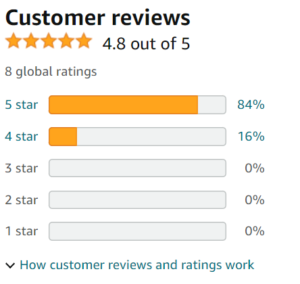My favorite author, fantasy or otherwise, is Patrick Rothfuss. I would put The Name of the Wind up as the greatest fantasy novel ever written. Just my opinion. Not looking for a fight. There might be what some would consider spoilers below, and these are my personal interpretations, so be advised.
As a writer, I love Rothfuss for a number of reasons. As the editor who wrote the foreword for the 10th anniversary deluxe edition of The Name of the Wind said, at its best, his prose rises to poetry. Though I have no illusions about my own ability in comparison, his writing is the standard I’ve set myself. A recent reviewer on Kirkus Review called my prose ‘painterly’. I’m choosing to take that as a compliment, as Argren Blue has a good bit of art and art history. If it is a compliment, I credit Rothfuss’s inspiration.
Rothfuss also tells a great story. The framing of a great, if traditional, fantasy story within the story of Kote in the inn adds an element of tragedy to The Kingkiller Chronicle that elevates it. It’s genius. I don’t envy him writing The Doors of Stone. He has two stories to reconcile and resolve, not just one.
But oddly enough, my favorite Rothfuss book is an offshoot of The Kingkiller Chronicle called The Slow Regard of Silent Things. I hesitate to call it a novel because it doesn’t follow traditional novel conventions. But who cares? I’ve never been able to entice my partner and coauthor, Deb, to read TSRST, so I know my love for this story is a personal thing, and I’ve often wondered why.
Of course, one reason is the writing. This book is Rothfuss at his best. I think, not being bound by the strictures of plot and traditional storytelling, he could let his word freak flag fly. When I read passages like this, it literally brings tears to my eyes.
She closed her eyes. She drew her shoulders back. She took a slow and steady breath.
There was a tension in the air. A weight. A wait. There was no wind. She did not speak. The world grew stretched and tight.
Auri drew a breath and opened her eyes.Auri was urchin small. Her tiny feet upon the stone were bare.
Auri stood, and in the circle of her golden hair she grinned and brought the weight of her desire down full upon the world.
And all things shook. And all things knew her will. And all things bent to please her.
Again… a personal thing, so if you don’t get it, that’s okay. The language is simple, but so evocative. There’s a playfulness to the use of words and sentence structure. It makes my brain purr.
So that’s an obvious reason, but this passage hints at why Auri is my favorite fantasy character ever. She’s adorable for one thing. That comes through in the lines ‘Auri was urchin small. Her tiny feet upon the stone were bare.’ The reader can’t help but adore her. Kvothe’s interactions with her in The Kingkiller Chronicle are a delight. She’s charmingly eccentric and seems so fragile. Kvothe’s desire to protect her is a window into his essential nature. All by itself, it tells the reader this is a good man.
When my partner read TSRST, I don’t think she quite got it and I understand why. The story doesn’t have a real plot. It seems to be about a waif of a girl going around the underthing anthropomorphizing inanimate objects. You can’t help wondering if she’s insane. This is one of my favorite passages:
The broom was eager after being trapped so long, so Auri brought it out and set to sweeping, brushing ancient dust and earth into a tidy pile. After that it was still restless, so Auri went to sweep the unnamed stair as well.
I suppose part of my fondness for Auri is that my mother has a habit of imbuing inanimate objects with personality. The rest of the family was always gently amused by this, but now I know this habit comes from an overflowing well of empathy and kindness. I see a little of my mother in Auri.
But Auri is not insane, or if she is, this interest in inanimate objects is not evidence of it. There is a hint to Auri’s true nature in the first passage above. She is actually one of the more powerful characters in all of fantasy literature. When she believes a broken gear wants to be moved to a different location, or a broom wants to be used, it isn’t her imagination, because, like Taborlin the Great, Auri knows the names of all things. She really does understand these objects’ essential natures.
And this is at the heart of why Auri is so intriguing. If you’ve read The Kingkiller Chronicle, you know what a towering figure Taborlin the Great is. Unlike Taborlin, Auri chooses to live a small life, eschewing legendary status with all its costs and benefits. One has to wonder why and that’s why she’s so fascinating to me.
Auri is obviously emotionally fragile, is OCD and has other psychological challenges. There are hints in all the books that she has a history which led her to this state. But her choice to live a small life, creating joy where no one else could, is all the more fascinating in light of her challenges.
People eagerly await The Doors of Stone for many reasons. But what I want to know most is what happens to Auri. There is a passage shortly after the one at the top of this post that is suggestive, but that may be wishful thinking. Anyway, I hope to see more Auri, wherever she may appear.





